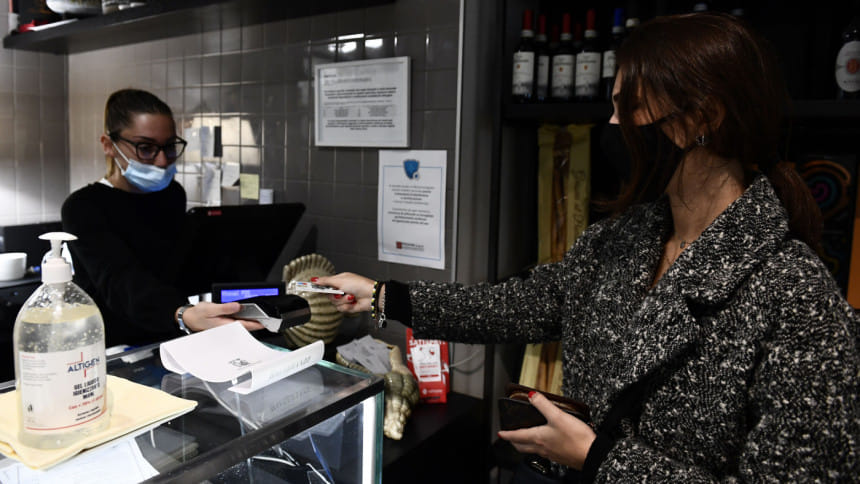Cash no longer king in Italy as Covid-19 helps government push for plastic

Italy's love affair with cash is fading. The coronavirus is turning Italians off notes and coins and the government is launching a raft of incentives to accelerate the trend, believing plastic payment can curb rampant tax evasion.
The Treasury estimates some 109 billion euros of tax is evaded annually, equal to about 21 per cent of the revenue actually collected. The government believes the problem can be tackled by boosting digital payments which, unlike cash, leave a trace.
Prime Minister Giuseppe Conte is offering refunds on some money spent electronically, tax breaks for outlets with card machines and a new 50-million euro ($58.93 million) state lottery for card users only.
The coronavirus, which forced the government to lock down the economy between March and May, is helping his efforts.
"We have seen a surge in digital payments since the lockdown, I think mainly because of people not wanting to touch notes and coins," says Cinzia Di Siena, who has run a pharmacy in southern Rome for the last 13 years.
A study published last week by credit association Assofin, market research firm Nomisma and pollster Ipsos said the lockdown was a "major occasion for Italians to try out non-cash payments," with almost eight out of 10 making purchases online.
It reported that 31 per cent of Italians increased their use of e-commerce during the lockdown, versus 23 per cent of respondents in the United States, 18 per cent in Germany and 16 per cent in Britain.
Despite the recent trend, Italy is nowhere near the level of cashless purchases seen in much of northern Europe. European Central Bank data shows card payments in Italy last year accounted for 12.3 per cent of GDP, versus a euro zone average of 16.6 per cent.
Many Italian market stalls and taxi drivers will still not accept cards, and it is commonplace for private doctors and other professionals to offer clients one fee for payment in cash and another, much higher one, for payment by card.
In his drive for a more cashless economy, Conte has promised that from Dec. 1 the state will refund Italians 10 per cent of all their credit or debit card spending up to a ceiling of 3,000 euros.
In addition, the 100,000 people who make the largest number of plastic payments, of any amount, in a six-month period, will get a "super cashback" payment of 3,000 euros.
Card payment receipts will be the tickets in the new state lottery next year, while from 2021 Italians will only be able to deduct medical expenses from their annual tax returns if they attach an electronic payment receipt.
Sabrina Patrizi who has run a fishmongers for 20 years at the bustling Alberone street market in southern Rome, said the incentives are already changing shoppers' habits even before they come into force.

 For all latest news, follow The Daily Star's Google News channel.
For all latest news, follow The Daily Star's Google News channel. 



Comments